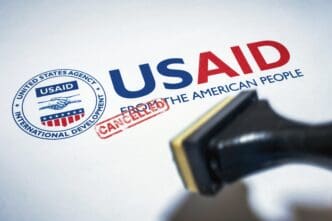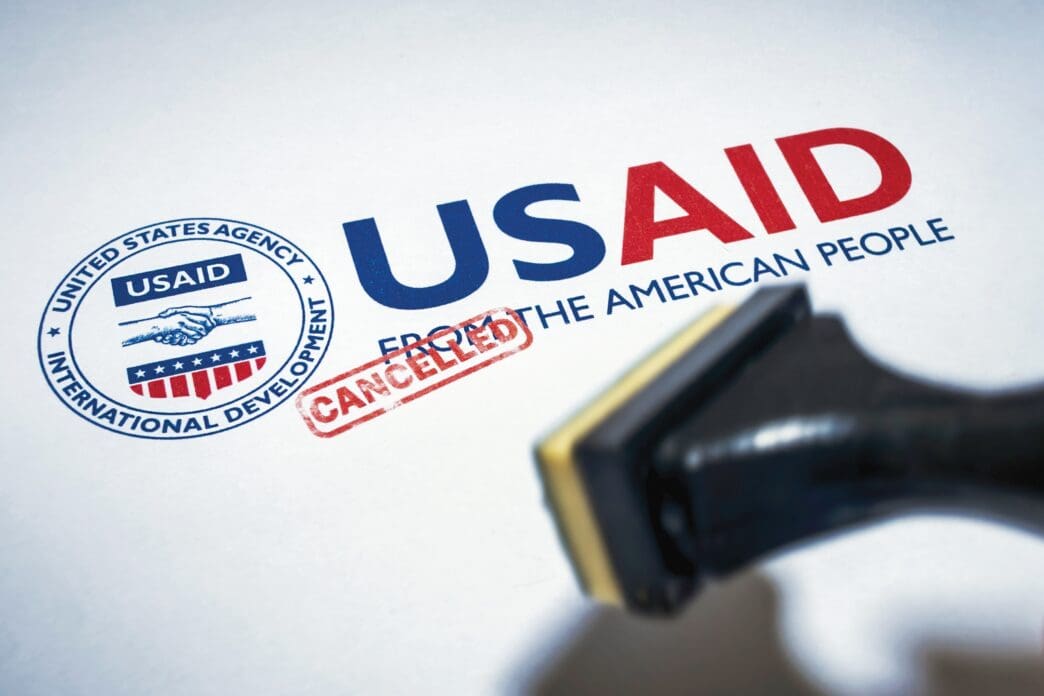Executive Summary
The Story So Far
Why This Matters
Who Thinks What?
The Supreme Court has granted President Donald Trump the authority to freeze approximately $4 billion in foreign aid payments, delivering a significant win to the White House in its ongoing efforts to curb congressionally approved spending. The decision, which saw the court’s three liberal justices dissent, impacts funds designated for global health, HIV programs, and other international assistance initiatives that Trump’s administration has deemed wasteful.
The Contested Funds and Executive Power
The contested funds, amounting to $4 billion, were allocated by Congress last year for various foreign aid programs. President Trump’s administration has been actively challenging this spending on two fronts: through federal court defenses and by seeking a “rescission” of the money via Congress. This Supreme Court ruling could establish a precedent, potentially offering the president a pathway to cancel additional congressionally approved funds in the future.
The court’s decision comes as Congress approaches a critical Tuesday night deadline to fund the government, averting a potential shutdown of federal agencies. Justices Elena Kagan, Sonia Sotomayor, and Ketanji Brown Jackson dissented from the majority opinion.
Court’s Rationale and Dissenting Views
In an unsigned order, the Supreme Court stated that the Trump administration’s argument regarding the lower court’s order affecting its “conduct of foreign affairs” appeared to “outweigh the potential harm” to nonprofit groups vying for the funds. The court emphasized that its order should not be interpreted as a final determination on the merits, but rather as a preliminary view consistent with standards for interim relief.
Justice Kagan, writing for the dissenting liberal justices, rejected the majority’s position. She argued that the executive branch must comply with appropriations laws requiring the obligation of money, unless Congress has explicitly relieved that duty through rescission or other action. Kagan asserted that the administration “cannot be heard to complain… that the laws clash with the president’s differing view of ‘American values’ and ‘American interests.’”
Kagan also criticized her colleagues for using the emergency docket, often referred to as the “shadow docket,” to grant the administration’s request. This expedited process has faced increasing scrutiny due to the justices frequently siding with the Trump administration, sometimes with minimal explanation. Kagan highlighted the limited time, scant briefing, lack of oral argument, and absence of deliberation afforded to the significant application. She wrote that in a few weeks, when the court begins its new term, it would decide cases of “far less import with far more process and reflection.”
Impact on Foreign Aid Programs
The Trump administration specifically targeted foreign aid programs it claimed conflicted with “American values.” Examples include micro-insurance programs for Colombian small farmers impacted by climate disasters and initiatives aimed at building “climate resilience in Honduras.” Nonprofit organizations, including several involved in global health, sued the administration in February, alleging the cuts represented an “unconstitutional exercise of executive power” and caused disruption in American foreign assistance efforts.
Scott Roehm, director of global policy at the Center for Victims of Torture, a plaintiff in the case, pointed to the potential impact on programs assisting torture victims. Roehm stated that “Gutting that program punishes torture survivors; people suffering from the deep physical and psychological scars that torturers inflict,” further adding, “The administration is abandoning torture victims to serve a naked political agenda, nothing more.”
Legal Battle and “Pocket Rescission”
The emergency foreign aid case has navigated through federal courts for months, raising fundamental questions about the president’s authority to freeze congressionally approved funds. The litigation has become entangled with budget negotiations on Capitol Hill and President Trump’s attempt to cancel spending through a “pocket rescission.” Federal law requires the administration to notify Congress of its intent to “rescind” approved funding, granting lawmakers 45 days to consider the request before the money is typically spent.
In this instance, Trump’s administration issued the notice within 45 days of the fiscal year’s end on September 30, after which funding approvals expire. This strategy effectively seeks to “run out the clock,” relying on Congress not to act before the fiscal year concludes.
US District Judge Amir Ali, nominated by President Joe Biden, initially ruled in favor of the nonprofit groups, asserting that Trump’s effort “usurps Congress’s exclusive authority to dictate whether the funds should be spent in the first place.” An appeals court in Washington, D.C., later revised its own ruling, allowing a narrower portion of the litigation to proceed. After Judge Ali again mandated the spending of the money, the Trump administration filed an emergency appeal with the Supreme Court.
The administration informed the Supreme Court of its intention to spend $6.5 billion of the foreign aid in question by September 30, while seeking permission to withhold an additional $4 billion. U.S. Solicitor General D. John Sauer argued to the court that “The president can hardly speak with one voice in foreign affairs or in dealings with Congress when the district court is forcing the executive branch to advocate against its own objectives.” Chief Justice John Roberts had temporarily paused Ali’s order to allow for further review. In late August, Trump had notified Congress of his intent to reclaim the money using a “pocket rescission,” with the administration arguing courts should not intervene during executive and legislative discussions over a proposed rescission.
Key Takeaways
The Supreme Court’s decision to allow President Trump to freeze $4 billion in foreign aid represents a significant victory for the administration’s efforts to control federal spending, despite strong dissent from liberal justices who emphasized Congress’s constitutional authority over appropriations. The ruling has implications for future presidential powers regarding congressionally approved funds and comes amidst ongoing budget negotiations in Washington.








